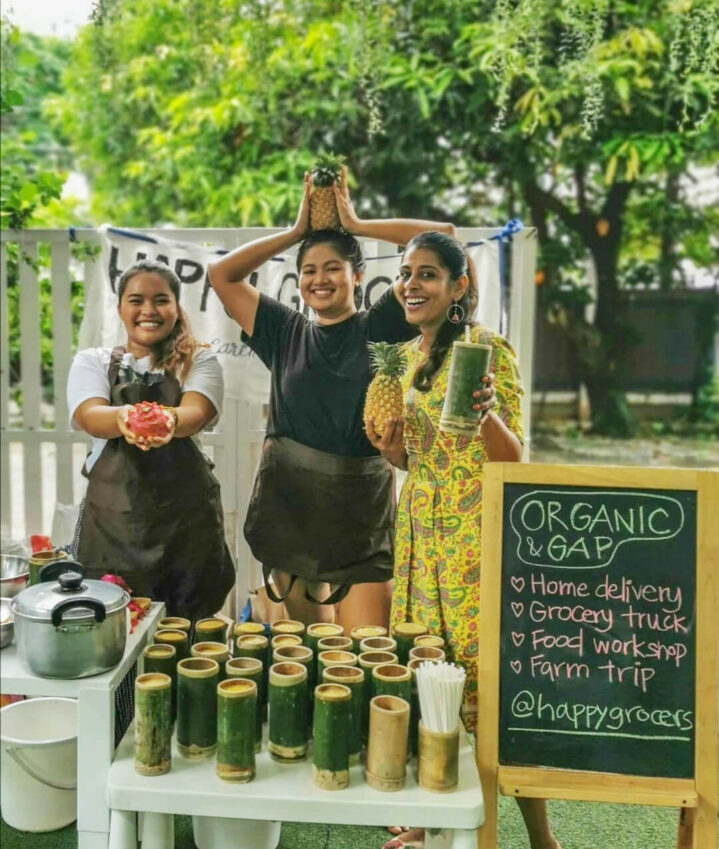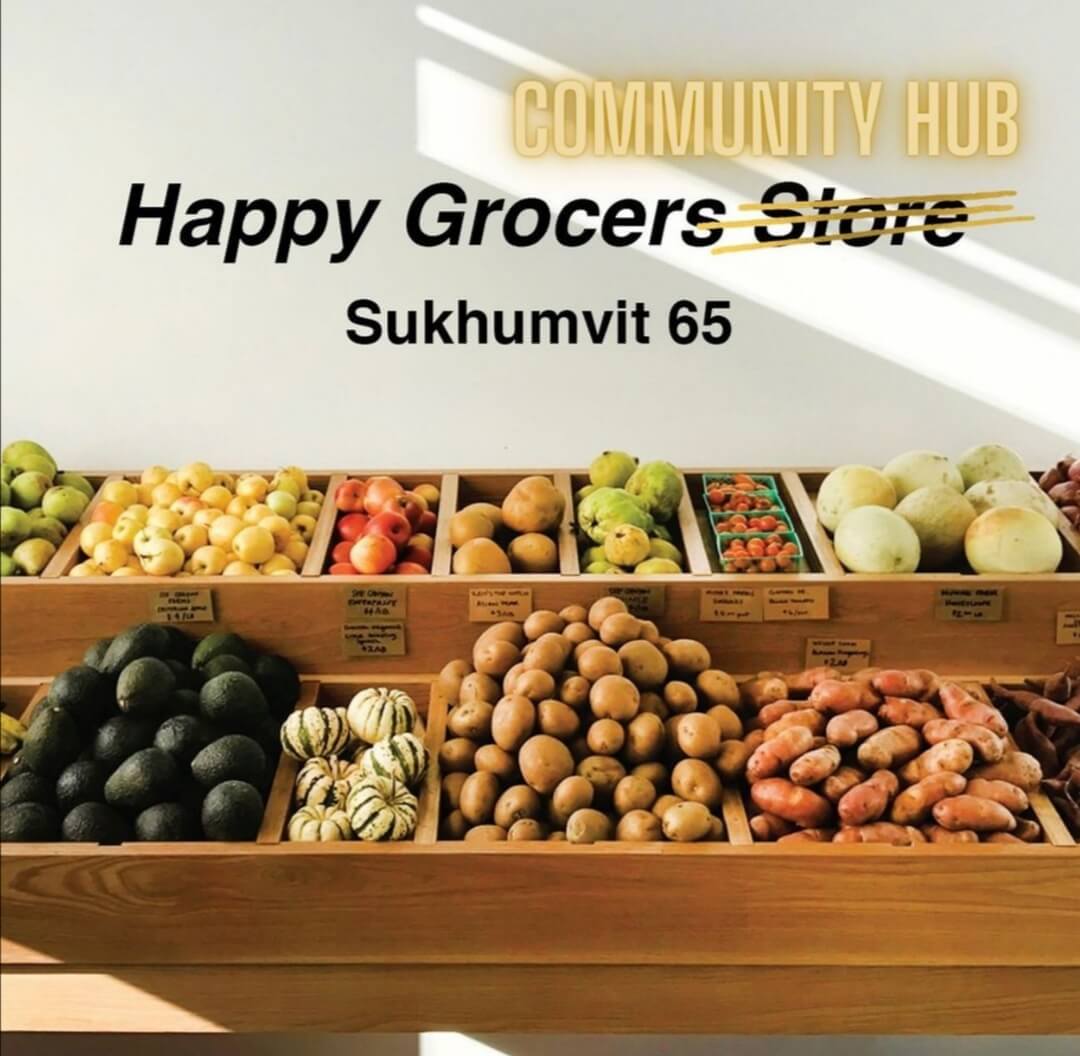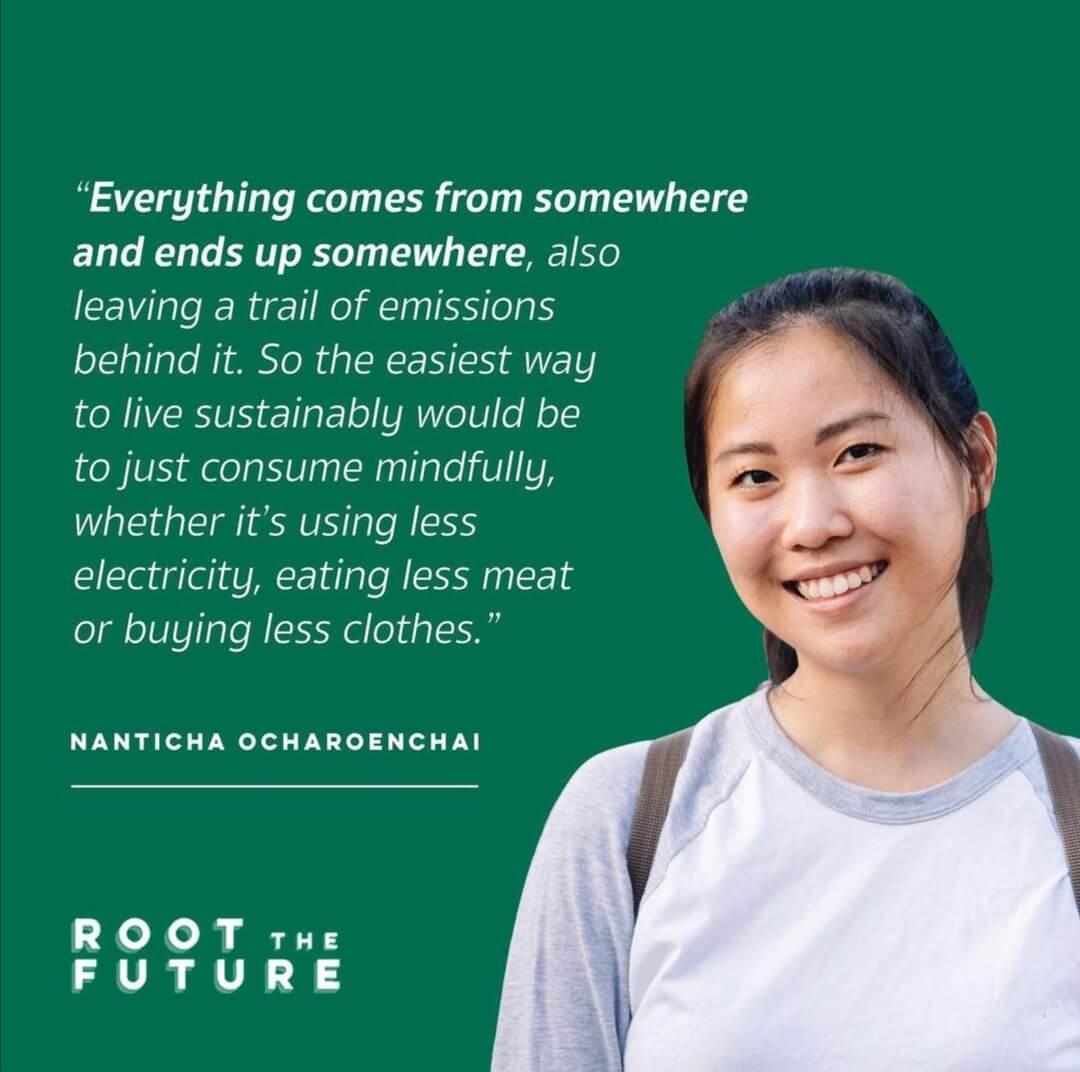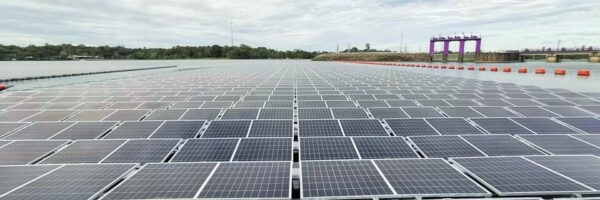
Can Thailand be a world leader for plant based meat and sustainable agriculture?
“We do not inherit the earth from our ancestors; we borrow it from our children”
The reality of climate change is hitting us harder than we ever imagined, as I am writing this, I am watching news coverage on a glacier in the Uttarakhand Himalayan region of India which burst two days ago. The remoteness of where this happened means no-one has a definitive answer, so far.
Experts say one possibility is that massive ice blocks broke off the glacier due to a temperature rise, releasing a huge amount of water. We are already seeing the possibilities of how inhabitable our planet will become in the lifetime of a teenager. The point is we are neck deep in an existential crisis we created and the question on whether we can mitigate climate change remains to be answered.
The food we eat has a huge impact on the planet and I was curious to understand the future of sustainable agriculture and plant based meat in Thailand. Can you imagine a day meat might be replaced by plant based meat? There are more and more plant based meat options in the meat section, I never thought I would see vegetables in the meat section. I strongly believe that the next ten years will define humanity, human action has caused climate change and human action also has the power to mitigate climate change. We have to choose between action and inaction and what we choose will define our future.
I met four industry leaders who are passionate about plant based meat and sustainable agriculture to understand the challenges of replacing meat with plant based meat in Thailand, a culture which has deep rooted connections to eating meat. Here is an excerpt from my Interview with them:

Root the future : A NGO for news and articles on plant based and sustainability related projects in Thailand.
Expat Life: What do you think are the main challenges for plant based meat in Thailand ?
Root The Future: The main challenges for plant based meat In Thailand are awareness, price point and accessibility. The facts and figures about plant based food and the environment have only recently emerged in social dialogue here in Thailand so it’s a very new thing that many people don’t know about.
The second thing, is that because of how new the plant based movement is here, there has been no time for most companies to scale up and start selling these products at a competitive price compared to meat, so the price point can still be relatively high for plant based meat (although plant based whole food is still some of the cheapest food the world over).
And thirdly, accessibility. This is a big one. For the folks who are aware of plant based food and it’s numerous benefits, and are willing to pay for it, it is still sometimes not accessible enough to make it convenient for people to purchase regularly (again talking about plant based alternatives like meat whole foods are incredibly easy and cheap to access).
Expat Life: Can it find a wider and a more mainstream market in Thailand in 2021?
In 2020 we saw the plant based food trend absolutely skyrocket. More people are sharing information and fast becoming aware. In 2020 we also saw a huge amount of plant based businesses start up. With the state of our environment and the ease of information sharing via social media, the only way is up. The movement is snowballing. Because this isn’t just a trend or a fad – it has real and impactful consequences for our planet, the animals and our health, there is no chance of it slowing down. That means in 2021 we expect to see more plant based business, more information and education, more accessibility and competitive price points for plant based food.
We are very excited for 2021 and are so inspired by this movement here in Thailand. We have no doubt that Thailand has a real chance of becoming the next big leader in plant based food.

Let’s plant meat: A plant based meat startup from Chiang Mai which was recently recognised as one of the winners of future food Asia’s plant protein award. I spoke to Smith Taweelerdniti, CEO of Let’s Plant Meat to understand if his brand can show the world that Thailand can be a world leader in plant based meat.
Expat Life: What do you think are the main challenges for creating a plant based meat market in Thailand?
Smith Taweelerdniti : Meat is cheap and easy to buy here in Thailand. Meat is deeply ingrained in our daily meal. To convince people to switch, we have to make it as tasty as the animal meat and roughly at the same price, too. Government put price control on animal meat, to help farmers, so retailers accept selling at no margin while making a profit from shampoos or tissue paper. Plant based meat does not have direct or indirect subsidy like that, so to keep price affordable is now a challenge.
Expat Life: How do you reach out to a market which does not care about ethical or environmental factors? The real challenge is to ensure plant based meat becomes the norm rather than niche, right?
Smith Taweelerdniti: I agree with you. But like many new things, people will adopt in tranches. First we must talk to early adopters like vegan or vegetarian groups, then to “sustainability and health conscious” consumers. From there, we hope to create enough momentum for restaurants to listen and want to offer more plant based meat options, then to reach late adopters will be less challenging.
Expat Life: Which product is your bestseller and why?
Smith Taweelerdniti: The burger is our best seller at the moment but our newly launched minced meat may have a bigger audience in Asia. Our burger is popular because it tastes very good at a significant saving compared to imported brands. Our minced meat still needs some time to grow the sales. We have added over 300 supermarkets across Thailand and convenience in buying will allow the products to grow faster

Golden State: A California coast inspired 100% vegan seafood restaurant in Bangkok, it is the brainchild of Chef Eric who is passionate about creating unique artistic plant based seafood menus using fresh local ingredients .They also sell vegan frozen seafood products for cook-at-home.
Expat Life : Eating seafood is so deep rooted in Thai culture, how has the response to your plant based seafood been?
Eric: The response to our new vegan seafood has been fantastic, beyond our expectations. It may be true that seafood is embedded in Thai culture however we have found that most customers want only the taste and feel of seafood without having to eat the animal itself. Sure, Thai customers want squid, calamari and crab etc, and we are happy and proud to offer such dishes made with plants only. It is not only Thai customers but really everyone around the world that “wakes up” after trying a few good vegan meals. In terms of good health and good karma, there is no comparison. Pure veg dishes just make you feel better in every way. Innovative chefs and food scientists are creating amazingly real plant based dishes. Soon there will simply be no reason to continue eating animals
Expat Life: Has it been challenging as a chef to cook plant based seafood ?
Eric: It has been challenging yes, but it is the most fun thing in the world to choose an existing and beloved seafood dish and try to reach up to that height of taste and feel. Why do we try to recreate a seafood dish? The true answer is that it is just fun. Can I fool you? Will you love it? Will you feel totally satisfied, but also lighter and fresher after our meal? Yes.
Expat Life: Is your focus on recreating the taste of tuna etc. or creating a completely new taste?
Eric: We try to land somewhere in the middle. We want our dishes to simulate tuna, for example, but also we want to improve upon that taste. Some people are turned off to real seafood because the taste is too strong. So we have creative space to improve upon that. Conceptually, our dishes are like seafood but they also eat like pure veg dishes. We are proud to offer great taste and peace of mind.
Happy Grocers was founded by three people who are passionate about saving the environment and empowering farmers.I spoke to Moh who is the cofounder, she has a B.A. in Social Entrepreneurship (Sustainability and Marketing).They deliver fresh fruits and vegetables to your door! They are transparent, traceable and plastic free.
Expat Life:You sell sustainable fish and chicken along with your vegetables, can you please explain what exactly is sustainable chicken and fish?
Moh: The chickens we sell are raised in a big facility with 5 chickens per one square metre. This is where they eat, sleep, and lay eggs. The outside part of the facility is a big open space for the chickens to walk around, look for worms and plants in nature. The chickens are very happy and stress free. Our fish is from a small community in Chompun and they follow the guidelines from the Marine Stewardship Council(MSC). We ensure that the fish population can continue indefinitely as well as remain productive and healthy. We also ensure that the fishing activity is managed carefully so that other species and habitats within the ecosystem remain healthy. We are completely against unsustainable fishing practices that not only distort the ecosystem but also support modern day slavery. There are over 20.9 million people all over the world who work under forced labour and slave trade in the fishing industry and we want to empower fishermen and educate people to only buy sustainable fish.
Expat Life: Given all the conditions needed for sustainable fish and chicken, the quantity must be limited and the price obviously higher?
Moh: That is right, our focus is to cater to a small market and we hope more small entrepreneurs can do the same business model like ours to create more awareness and empower local fishermen in small communities.Having said that, sustainable fish is very limited and cannot feed the entire population but we hope mindful consumers start questioning the supply chain of their food and choose the most sustainable alternative available.
Expat Life: Do you have any advice for consumers who want to eat a sustainable diet?
Moh: The best option is to support local small businesses which are transparent. Most small local businesses are happy to offer a tour of their farm because they are proud of the living conditions of the farmers and the way they grow their food. Once people care about where their food comes from and understand the supply chain, it will help farmers get empowered and eventually increased demand for sustainable food can bring down the prices.
I often wonder what the future of sustainable agriculture is, is it lab based meat, plant based meat or both? Well, it is safe to say that we will be witnessing a lot of change in the next ten years. Will all our efforts to mitigate climate change work? It is very early to answer that but I sure hope we can all become mindful consumers and vote for the planet through our wallet power.



